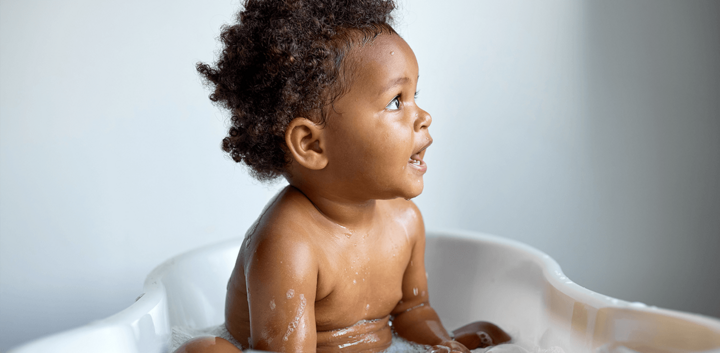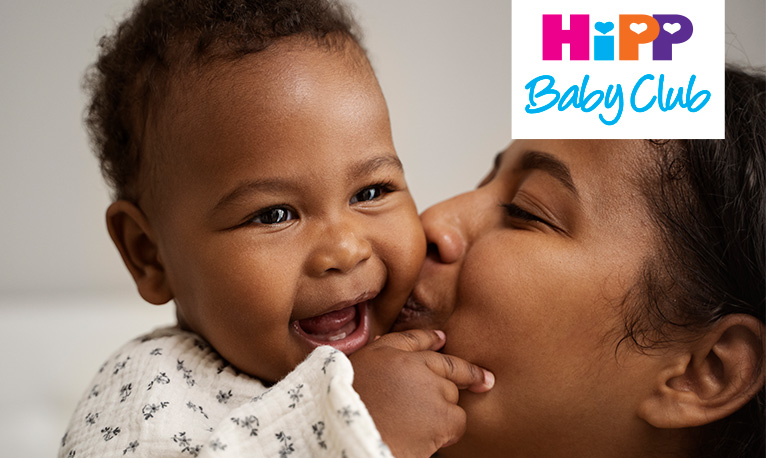Skincare ingredients to avoid
Newborn | | Dr Alia Ahmed
Young skin is sensitive. It requires gentle skin care that won’t irritate or aggravate existing skin issues, and which also protects the skin barrier. Because babies and young children aren’t able to regulate temperature and moisture loss as well as older children and adults, their skin is prone to developing issues, such as dry, itchy, rough, bumpy or inflamed skin.
On top of that, babies’ skin has less protection than adults; it is thinner and lacks the ability after birth to make its own natural moisturising factors. With this in mind, there are some common skincare ingredients to be aware of when choosing skincare for young skin.
Avoid SLS
Sodium laurel sulphate (SLS) is a foaming agent that is added to common skincare products like bubble bath, body washes and shampoos. Unfortunately, it can irritate skin and is best avoided when choosing products for delicate or sensitive skin in the early stages. Luckily, there are plenty of other ways to make bath time fun for little ones, for example by adding toys to the bath or natural colours.
A fun product to use, which is SLS-free is HiPP Clean & Green Bubbly Bath, or try HiPP Soft and Smooth All-in-one Wash. HiPP use Sodium Lauroyl Sarcosinate to get their bubbles bubbling, a milder foamer than SLS.
Alcohol dehydrates babies’ skin
No one would think of giving their babies alcohol, and yet it’s often found in skin care products. Although it has many useful properties, alcohol (sometimes labelled as ethanol) can dry out skin, and this can especially affect little ones, causing inflammation, itching and flaking of the skin.
Additionally, if your baby has an underlying tendency for dry skin, alcohol in skincare products can aggravate this, resulting in irritation. Look out for ethanol/alcohol in skincare products and avoid where possible. Fatty alcohols on the other hand are better tolerated, such as lauryl or stearyl alcohol.
Go fragrance-free
Although fragranced products can smell wonderful, they can be a source of dermatitis (or skin inflammation) for young and sensitive skin. Synthetic fragrances can cause skin allergies and ongoing irritation, especially if your child already has a skin condition (e.g. eczema).
Natural fragrances (e.g. essential oils) may be less likely to cause skin reactions. However, it’s always a good idea to err on the side of caution and avoid fragranced products if you suspect your child’s skin is reacting. Look for products free from allergenic fragrances.
Steer clear of worrying additives
There are many other synthetic ingredients added to skincare products that have the potential to irritate skin and there have been some concerns raised regarding absorption of ingredients and long-term effects.
Although much of this is being studied, it is reassuring that the HiPP brand includes products that are free from allergenic fragrances, essential oils, paraffins, polyethene glycol and parabens (a preservative), making these an ideal choice for sensitive skin.
Look for dermatologically approved products
Babies and young children with delicate skin are prone to dry skin, which can lead to irritation and soreness. For this reason, we look to skin care products to include skin barrier enhancing properties, like adding moisture and maintaining hydration and resilience, especially in situations where genetic (e.g. family history of eczema) or environmental (e.g. humidity, temperature) factors can make the skin barrier more susceptible to dysfunction.
When choosing a product for your baby’s skin, check to see that the product has been dermatologically approved, and ensure the ingredients listed contain only things that are known to be safe for babies and young children. Avoid harmful ingredients and unnecessary sensitising additives, like perfumes or SLS, that can cause contact dermatitis. Using targeted products formulated especially for young skin is beneficial, as adult products can contain ingredients (e.g. surfactants) that cause or drive irritation.
Magic almonds
Some of the most common concerns that I discuss with parents/carers around choosing skincare for babies are about ‘drying skin out’ or causing irritation. Being aware of ingredients that can cause these issues is important, and so is knowing which ingredients are good for young skin!
Almond oil (or sweet almond oil – Prunus amygdalus dulcis oil) has a wide use in skincare products for young skin. It can help to repair the skin barrier, prevents water loss and has anti-inflammatory, anti-oxidant, anti-bacterial and strengthening properties. Having naturally high levels of oleic acid means almond oil can be used effectively in cleansing and moisturising products for the skin. This mutifunctional ingredient is integral to all HiPP moisturisers, and is suitable for ultrasensitive skin.
Which products do you need?
There are so many products out there, and only so many opportunities to use them. What you don’t want is to end up with cupboards full of products you’re barely using, or ones you trialled and didn’t get on with.
By starting out with the right types of products – avoiding those irritants mentioned above – you will hopefully save yourself money and space, while helping your little one thrive without the discomfort of dry, itchy or sore skin.
Generally speaking, when you’re deciding which products are going to be in your arsenal, you need to include:
- Bath additive ¬– Moisturising bath additives help to protect and nourish skin when bathing.
- Cleanser – Choose an appropriate ph neutral cleanser for the skin and scalp to maintain the skin microbiome.
- Moisturiser – Regular application of moisturising lotions/creams helps to keep skin hydrated and replenished.
Please consider seeing a dermatologist or seeking healthcare professional advice if your child has ongoing skin issues or you suspect sensitivity to skincare products.
References
Kuller JM. Infant Skin Care Products: What Are the Issues? Adv Neonatal Care. 2016 Oct;16 Suppl 5S:S3-S12. doi: 10.1097/ANC.0000000000000341. PMID: 27676112.
Blume-Peytavi U, Lavender T, Jenerowicz D, Ryumina I, Stalder JF, Torrelo A, Cork MJ. Recommendations from a European Roundtable Meeting on Best Practice Healthy Infant Skin Care. Pediatr Dermatol. 2016 May;33(3):311-21. doi: 10.1111/pde.12819. Epub 2016 Feb 26. PMID: 26919683; PMCID: PMC5069619.


